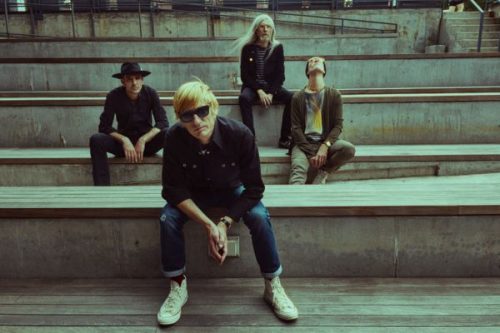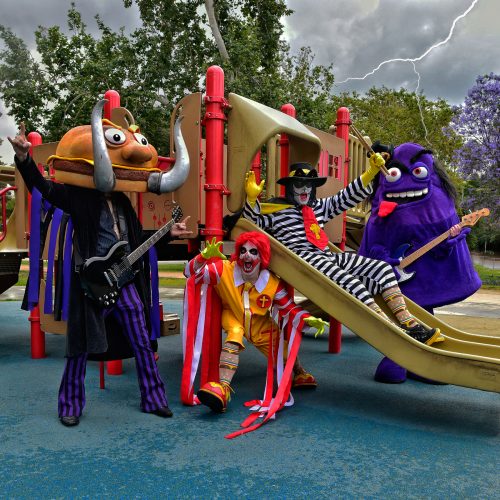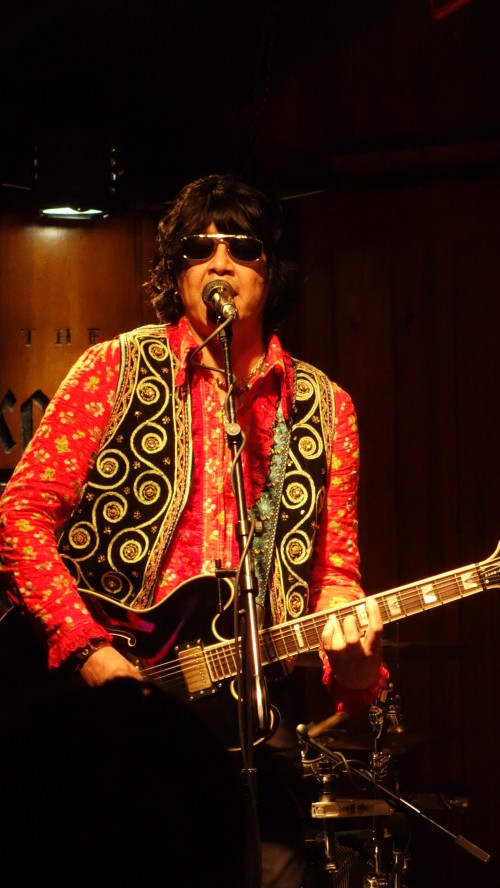Kula Shaker, the psychedelic, mystical band to emerge out of the UK in the mid-1990s, was a counterbalance to the stadium-ready anthems that were dominating Britain at the time. It’s taken nearly 30 years, but frontman Crispian Mills thinks the world has caught up to the group’s ethos.
“I think that what’s happened now is we’re much more sort of in tune with what’s going on in the world than we were back then,” says Mills on a Zoom call from his home in Cornwall in the southwest of England. “I think people are really, really looking for the colorful and the psychedelic and the spiritual and the reconciling of opposites.”
The band’s debut album “K” reached the top of the UK albums chart on the back of the singles “Tattva” (which was in rotation on MTV in the US), “Govinda” and “Hey Dude.” A cover of Deep Purple’s “Hush” came the next year and was a hit in both countries.
With a new single, “Charge of the Light Brigade,” a follow-up to last year’s “Natural Magick” album due by the end of the year, a recent run of dates with Ocean Colour Scene and US dates to be announced, Kula Shaker appears to be fully back, especially with the return of Jay Darlington, who left in 1999, playing with Oasis until its 2009 breakup and various other groups.
Mills chatted about the new song, the upcoming album, the current state of the band and Kula Shaker’s role in the British rock scene.
Is the new album done?
Almost. It’s going to be [released] at the beginning of the fourth quarter, the fall. The band’s become very prolific and energetic and creative in our later years. Partly the whole kind of pandemic experience and all of that mania has really gave us a real impetus to go out and play and to get out of our shells. And then Jay, our original Hammond organ player, came back from the cold of Oasis and it was like a reunion of the old gang, and the chemistry was very powerful and lots of fun. And you get a huge amount of push and energy. Our last record, it’s a great pop record, and we’re just continuing on from that. It’s the next part of this new wave.
How did “Charge of the Light Brigade” come together and why did you decide to release it as the first single for this cycle?
I think lyrically it just felt like a good start, you know? The Charge of the Light Brigade is a very famous British military blunder from the Crimean War, not this one, the last one. The British love to celebrate defeat, that’s their national hobby. But apart from that, I think I would like to give it a sort of different twist. You know, a charge of intention. I like the idea of people who are the workers of light and the poets of light and bringing light into into all this darkness. What better way to kick things off with a cavalry charge?
When Kula Shaker first got together, there was a cultural wave in the UK with Britpop, Cool Britannia and the Madchester scene. Did you feel a part of that? Where did you fit in, if you did fit in at all?
We felt like we were the spiritual disruptors, and it was a lot of fun to play that role. And it turned into you know, you might call it a kind of a mystical war, because what we were doing was fun and we were very young. And I think the fact that we were young made it very frustrating for people to completely disregard us because they started off laughing, laughing at the whole spiritual, mystical, psychedelic aspect of it. And then they realized that quite a lot of people were resonating with it and connecting with it and appreciating it. I think it got in the way of the kind of dumbing down aspect of Britpop, which there was a huge part, you know; it was let’s celebrate our own stupidity. Let’s celebrate the worst part of our culture as if it’s some kind of anthem. You know, just beer and drugs and not even interesting drugs, boring drugs like cocaine and lager. There wasn’t much imagination going into it. So we were really in contrast with that.
How did you come up with the song “Grateful When You’re Dead/ Jerry Was There” on your first album “K”?
I do like the Dead, but I have to confess that I never saw them. I liked their concept of the Grateful Dead even more than the band. I liked the the fact that the band became more than the music and more than the individuals in the band, how it became a sort of a flashpoint for a certain type of lifestyle. And you know, it embodied more than the music. Half of my family are in America, and so I have cousins in California, and one of them was a complete Deadhead and was always sort of evangelizing about Jerry [Garcia]. So when Jerry passed away, it was a big deal, and I knew that he would be feeling that deeply, and I wrote it for him. It was the idea of the memorial concert, you know, and that obviously Jerry was there.




Leave a Reply